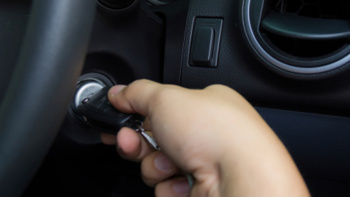
Air New Zealand’s chief executive says next month’s planned cabin crew strike will impact customers but he hopes cancellations can be kept to a minimum.
Nikhil Ravishankar also told Herald NOW the engine issues with Airbus A320 Pratt & Whitney engines would likely take 18-24 months to resolve.
A need to check the PW1100G engines for microscopic cracks threw maintenance schedules for those engines into disarray.
“I have a high level of trust that they are on top of what they have to do to fix that,” Ravishankar’s predecessor Greg Foran said of Pratt & Whitney earlier this year.
The issues affect Airbus A320 and A321neo aircraft.
The airline has 34 of the narrowbody jets in its fleet.
Ravishankar also responded to Bruce Cotterill, who said the airline had reliability issues and the leadership team had to improve customer experiences.
“Perception is reality. And we have to deal with that perception,” Ravishankar said today.
He said frontline staff were already empowered to use common sense and show initiative to look after customers.
“Within guardrails, they’ve got the right to make sure that customers are taken care of.”
In some situations that meant frontline staff could change flights, he said.
Ravishankar said about 2% of the airline’s roughly 170,000 flights a year involved “controllable cancellations”.
Those involved engine issues, aircraft issues or crew issues.
He said a world-class rating in this area was 1%.
“So we have to halve that before we are very proud internally about where we are.”
He said aviation engineering staff issues were being addressed but issues lingered with spare parts, and the global aviation supply chain was stretched.
Ravishankar said he’d been in touch with previous Air New Zealand chief executives.
He added: “It’s been one hell of a five-week period for me in my new role. And one of the things that makes it possible to do a job like this is the support of your team.”
He said he wanted Air New Zealand to be the “world’s best little airline from the best little country in the world”.
He said the airline was well-respected around the world.
On fares, he said the airline had faced high inflation.
He said the airline was trying to control costs where possible, and elsewhere trying to influence change.
Airline costs include airport landing charges and levies from air traffic control and aviation security.

An Air New Zealand Airbus A320. Photo / 123RF
Ravishankar today also addressed possible strike action.
Of next month’s planned cabin crew strike, he hoped cancellations could be kept to a minimum.
“We’re doing everything we can to avoid strike action. We’re meeting again with the unions this week,” he said.
“I’m still hopeful that it won’t get there but if we did go down that path, we’ve got teams working very hard to make sure that customer disruptions are kept to a minimum.”
He said most cabin crew were union members.
“We are looking at options of how we deal with the strike option on a progressive basis. We think we can work hard to keep disruptions to a minimum. That said, we will have to cancel flights but we will reaccommodate customers.”
He said flight attendants were paid about $58,000 to $85,000 a year.
“It’s a job that is quite unique. So there are a lot of non-base allowances as well.”
Take your Radio, Podcasts and Music with you









